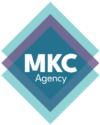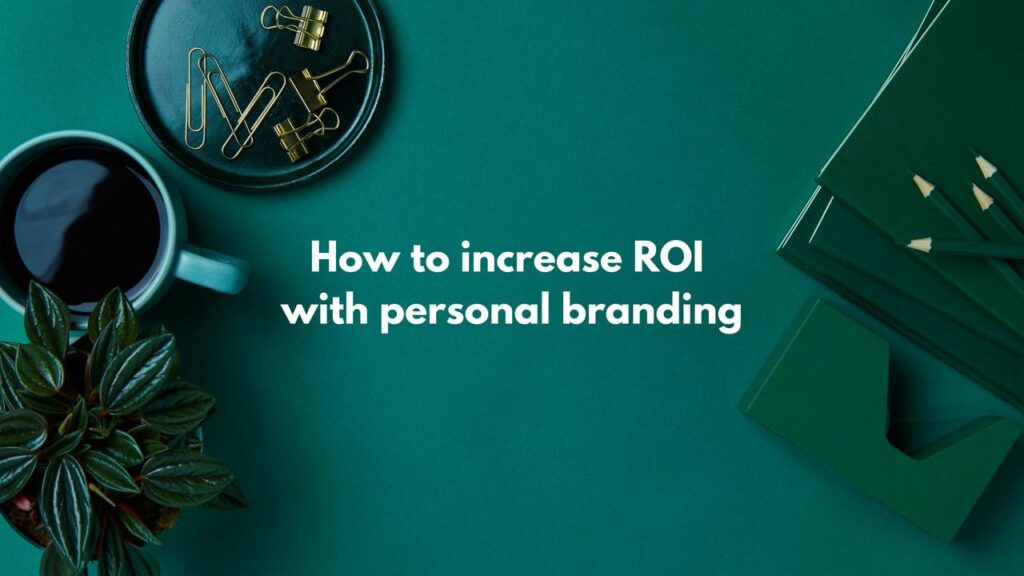Prefer to listen? Check it out on BuzzSprout.
Personal branding has come a long way since Tom Peters first coined it in the 1990s. In the age of social media, where anyone with an internet connection can reach millions of people with their ideas and stories, personal branding has taken on an entirely new meaning. Because of its popularity as a marketing strategy, it’s often confused with self-promotion, which isn’t quite right either.
1) What is Personal Branding?
If you’re looking for a way to increase your sales and raise your professional profile, there’s a simple solution: personal branding. Not only does building a solid online brand result in increased revenue and opportunities, but it also helps you build a solid reputation that can help take your career in any direction—up or down.
We all have personal brands. Your brand is how others regard you. Your personal brand is your reputation at scale.
Actively working on your brand indicates you are deliberate about how you’re perceived. The opportunity lies in controlling the narrative, making conscious choices, and building a brand for yourself.
The alternative is leaving it to fate. People will have their perception of you regardless. Isn’t it better to lead them where you want them to go?
By creating and posting content on platforms such as LinkedIn, you have the power to dictate what you want to be distinguished and how you communicate that to your audience.
2) Who should do it?
Start now: It’s no longer enough to show up, do your job, and collect a paycheck. For many organizations, it’s now necessary for workers to take an active role in their career trajectory—and that means developing and building their personal brand. Starting today (no matter where you are in your career), create or bolster your personal brand by taking these simple steps.
3) Where should you start?
LinkedIn is the best place to get started if your goal is to work in B2B or improve your career trajectory.
1. Identify your voice
Typically, your voice combines what you do, what you are passionate about, and your market’s needs. It can be one thing or several. It’s good advice to stick to a maximum of 3 topics not to spread yourself too thin. I have been terrible at following this advice over the years. Cue my cycle of working hard and taking time off. If you want a steadier path to the top, stick to less than three topics. Know your limits.
2. Post at a sustainable frequency
At least for one year straight without blinking post to LinkedIn with the same frequency. That could be once a day or twice a week. Make a choice and follow through. Make it a habit. If you’ve been following brand 30, you already know that daily is preferable. However, just like with topics, it’s essential to build your plan around what is sustainable for you rather than what others are doing.
3. Reply to engagement
Engagement comes, slowly but surely. Set time aside to respond to everyone. Don’t post and ghost. You are building a personal brand, a tribe, a community. Interaction is a fundamental key. How can you expect your audience to engage with you if you aren’t involved and interactive?
4. Authenticity
You can be professional while you’re personal. As far as I know (looking at you, Musk & Bezo), we’re all human, and showing our human side is vital to building lasting relationships. How much of your personal life you share is up to you. However, the most relatable content is always personal. People have to feel that you are you. Be transparent. Talk about your struggles as well as your wins. Make your LinkedIn similar to sitting down in your office to chat with you. If you were out for coffee with a colleague, what would you say?
5. Keep it fun
It’s imperative to have fun. Don’t take yourself too seriously. Shelve your ego and enjoy new perspectives to level up your thinking. Some things will hit the first time, and other content will take time to build. Enjoy it. It shouldn’t feel like work if you’re authentic.
And perhaps most importantly, be patient. There’s no silver bullet, and all those “overnight successes” you see had storylines before they went viral.
4) Why personal branding matters
It’s no longer enough to be good at your job. The most successful people have a strong brand that communicates who they are, what they stand for, and how they fit into their culture and mission. By understanding your personal brand and how it works into your organization’s brand, you can optimize each aspect of your professional life, from networking events to emails.
5) What can personal branding do for your career?
In 2021, having a solid personal brand will give you an edge in every industry. It might seem daunting or over-the-top, but it’s not something to be afraid of—it’s a new way of marketing yourself that will give you more control and focus in your career. One of my favorite things about blogging is that I can discuss anything I want.

